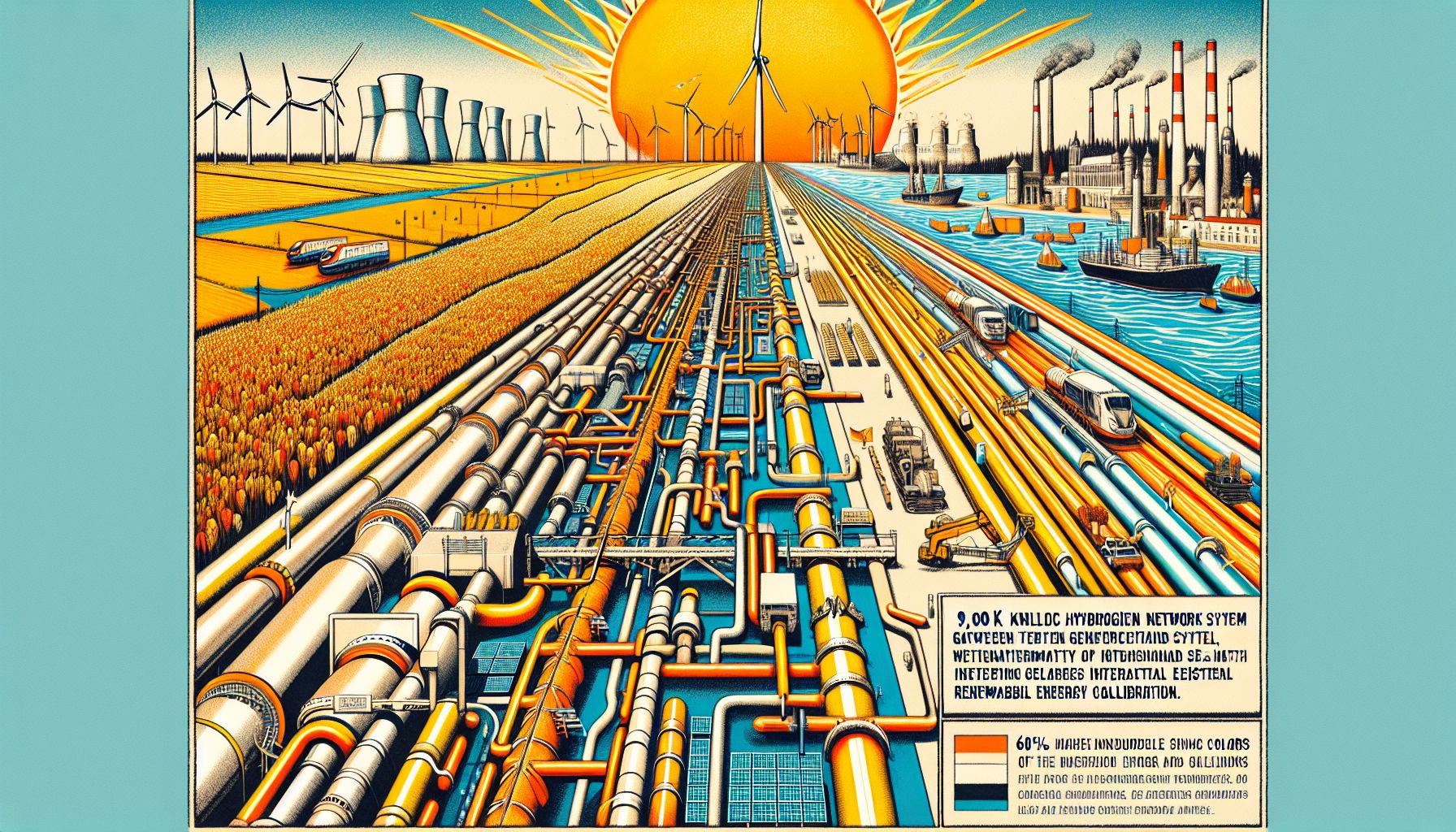Germany Extends Hydrogen Network to Netherlands, Boosting European Energy Cooperation

Berlin, Wednesday, 23 October 2024.
Germany’s ambitious €18.9 billion hydrogen network project is set to include the Netherlands, marking a significant step in cross-border renewable energy collaboration. The 9,000-kilometer pipeline system aims to connect major industrial areas by 2032, with 60% repurposed from existing gas infrastructure.
A Major Step in Sustainable Energy
Germany’s decision to include the Netherlands in its hydrogen network plan exemplifies a commitment to sustainable energy that extends beyond national borders. As Europe’s largest economy, Germany is poised to lead by example, demonstrating the potential of hydrogen as a cornerstone for future energy solutions. This initiative supports the European Union’s broader goals for reducing carbon emissions and achieving climate neutrality by 2050. The German government has allocated €18.9 billion to construct over 9,000 kilometers of hydrogen pipelines, making it one of the largest infrastructure projects in sustainable energy globally[1].
Challenges and Strategic Responses
Despite the project’s promising outlook, it faces significant challenges. The withdrawal of Norwegian energy giant Equinor as a hydrogen supplier underscores the high costs and uncertainties in the market. Additionally, some major consumers, including Thyssen-Krupp, have expressed reservations about transitioning to hydrogen due to potential cost implications[1]. In response, the German government has promised substantial financial support to companies willing to make the shift, aiming for climate neutrality by 2045[1].
The Netherlands’ Role and Challenges
The incorporation of the Netherlands into this expansive network highlights a critical opportunity for cross-border collaboration. The Dutch hydrogen network, however, requires significant upgrades to meet future demands. Uniper has warned that without new pipelines, the network’s future could be jeopardized, potentially impeding the country’s hydrogen projects[2]. The Delta Rhine Corridor, a key segment connecting Rotterdam to Germany, faces delays, with a completion target set for 2030[2].
Economic and Environmental Implications
Economically, the hydrogen network promises to position the Netherlands as a pivotal player in Europe’s hydrogen supply chain, potentially transforming Rotterdam into a major hydrogen port. Environmentally, hydrogen offers a cleaner energy alternative, with the potential to significantly reduce greenhouse gas emissions. However, the cost of green hydrogen remains high, although declining renewable energy costs are gradually making it more competitive[1][2][3].
Future Prospects and Strategic Importance
The successful implementation of this hydrogen network could reshape Europe’s energy landscape. By integrating existing gas infrastructure and fostering international partnerships, Germany and the Netherlands are setting a precedent for sustainable energy development. This project not only aims to meet current energy demands but also to future-proof against upcoming environmental challenges, reinforcing Europe’s commitment to a sustainable and resilient energy future[1][3].

